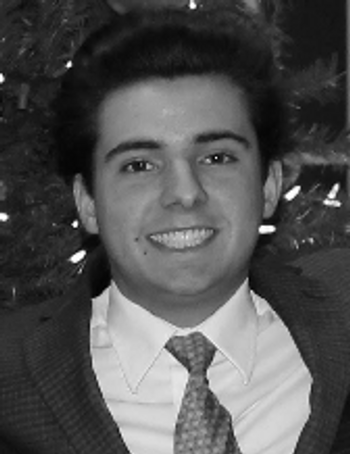Cornell's 'Racial Allyship Training' teaches students to 'disrupt white spaces' and 'decenter whiteness'
Originally created to produce 'white allies,' the free online course instructs users on Critical Race Theory and how to 'become better allies in the fight against racism.'
One module has participants consider how they would respond to embarrassing old social media posts like Chris Hemsworth did in 2016 after dressing up as a Native American.
Cornell University’s Center for Health Equity is providing a free five-hour-long online course to help white people “become better allies in the fight against racism.”
“In July 2020, two months after George Floyd was murdered while in police custody, a group of students, faculty and staff at the Cornell Center for Health Equity gathered to search for racial allyship resources online,” states the school’s website. “When they found skills-based and virtual learning opportunities were lacking, they decided to develop their own.”
Initially, the course was intended for training “white allies,” but was amended “after students of color provided insightful feedback,” according to Laura Parrilla, a co-associate director of the center.
Titled, “Cornell Center for Health Equity Racial Allyship Training,” the course contains four main parts: Module 1: Rethinking Race and its Effects on Society, Module 2: Fundamental Attribution Error, Module 3: Building and Practicing Allyship Skills, and Module 4: Create an Action Plan.
Upon immediately starting the course, users are informed that “Racism is a Public Health Issue.”
“This is because racism influences the social conditions that impact health (the social determinants of health) and is an independent factor in health outcomes,” the training states.
The next part of Module 1 offers participants various resources to exhibit that, “The History of Race and Racism, as it is Taught in U.S. Schools, is Incomplete.” The listed resources include “Jim Crow: Now and Then,” “Housing Segregation and Redlining in America: A Short History,” and the “Racial Wealth Gap.”
Module 2 exposes course users to Critical Race Theory, with resources like “Critical Race Theory Explained“ and “The Man Behind Critical Race Theory.”
Most notably, Module 3 features a TED Talk, “What if white people led the charge to end racism,” and has participants “pause for a moment to reflect” on a 2016 social media post in which actor Chris Hemsworth apologized for dressing as a Native American during a New Year’s Eve party.
The course then offers similar scenarios for participants to engage with and answer multiple choice questions.
“Twenty years ago, when you were 17, you made a Facebook post saying you wanted to obtain welfare for your dogs because they are ‘mixed in color, unemployed, lazy, can’t speak English and have no friggin clue who their Daddies are.’ This post has resurfaced, and a co-worker has brought it up with HR. You are sure you do not find this funny or appropriate now, so you [would?],” states one example.
The correct answer to the scenario is: “Apologize and explain that this is not who you are now and that you will take some steps to educate yourself further.”
[RELATED: University offers grad certificate to ‘denaturalize heterosexuality’]
The following skill section, focusing on how to “Amplify,” encourages users to “[d]ecenter Whiteness and prioritize marginalized voices.”
A subsequent skill section, “Disrupt White Spaces,” asserts that individuals will exhibit “microaggressive behavior” when “people exist in White spaces and see things they believe to be threatening to those spaces.”
As such, course participants are encouraged to “[r]ecognize and disrupt White spaces when they become safe-havens for attitudes that further oppression, from tacit complicity with racist systems to giving space for inadvertently oppressive attitudes to ferment.”
Upon completing the course, participants should feel that the training “challenged the way you think and feel about what it means to be an anti-racist ally, and inspired you to make changes in your daily life.”
Campus Reform contacted Cornell for comment and will update this article accordingly.


